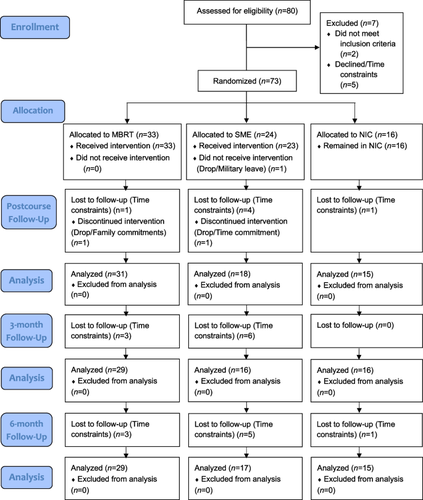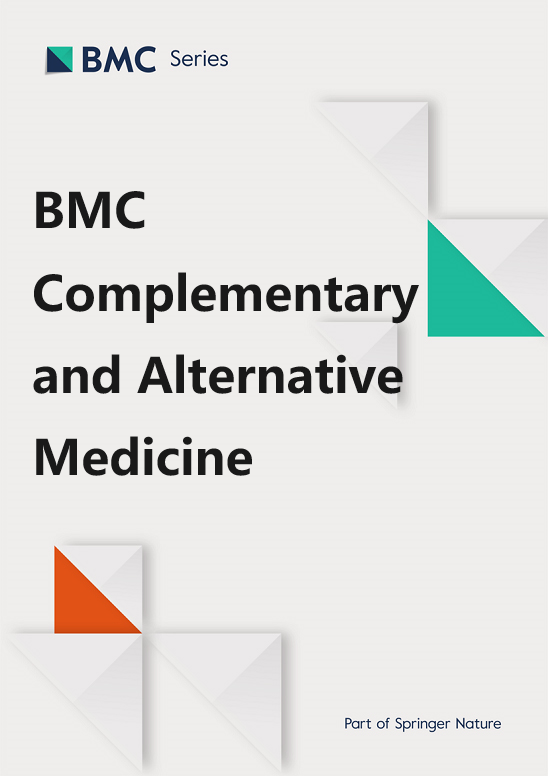基于正念的复原力培训对执法人员的攻击、压力和健康的多站点可行性随机临床试验
IF 3.4
2区 医学
Q1 Medicine
引用次数: 0
摘要
执法人员(LEOs)面临的巨大压力会影响他们的心理健康,增加创伤后应激障碍、职业倦怠、酗酒、抑郁和自杀的风险。执法人员的健康受损可能会导致攻击行为和过度使用武力。对于高压力人群来说,正念训练是一种很有前景的方法,而且已被证明能有效提高复原力,改善低级别执法人员常见的心理健康问题。这项多地点、随机、单盲临床可行性试验旨在为未来的全面、多地点试验制定最佳方案和程序,以评估正念抗压训练(MBRT)与注意力对照(压力管理教育[SME])和无干预对照对压力和心理健康的生理、注意力和心理指数的影响。本研究旨在提高招募、参与和保留的效率;优化评估、干预训练和结果测量;并确保干预方案的忠实性。研究还考察了随着时间推移对变化的反应能力,以确定对目标结果的潜在近期和长期评估的最大反应能力。我们观察到了招募和保留的高度可行性、MBRT 的可接受性、对评估和干预方案的忠实性,以及对各种假定的生理和自我报告机制和结果测量的变化的反应性。这项多站点可行性试验的结果为全面的多站点试验奠定了基础,以测试 MBRT 在增强 LEO 健康和复原力以及减少攻击性和过度使用武力等较远期结果方面的功效,这将为他们所服务的社区带来显著的下游效益。ClinicalTrials.gov, NCT03784846 。注册日期:2018 年 12 月 24 日。本文章由计算机程序翻译,如有差异,请以英文原文为准。

A multisite feasibility randomized clinical trial of mindfulness-based resilience training for aggression, stress, and health in law enforcement officers
Law enforcement officers (LEOs) are exposed to significant stressors that can impact their mental health, increasing risk of posttraumatic stress disorder, burnout, at-risk alcohol use, depression, and suicidality. Compromised LEO health can subsequently lead to aggression and excessive use of force. Mindfulness training is a promising approach for high-stress populations and has been shown to be effective in increasing resilience and improving mental health issues common among LEOs. This multi-site, randomized, single-blind clinical feasibility trial was intended to establish optimal protocols and procedures for a future full-scale, multi-site trial assessing effects of mindfulness-based resilience training (MBRT) versus an attention control (stress management education [SME]) and a no-intervention control, on physiological, attentional, and psychological indices of stress and mental health. The current study was designed to enhance efficiency of recruitment, engagement and retention; optimize assessment, intervention training and outcome measures; and ensure fidelity to intervention protocols. Responsiveness to change over time was examined to identify the most responsive potential proximate and longer-term assessments of targeted outcomes. We observed high feasibility of recruitment and retention, acceptability of MBRT, fidelity to assessment and intervention protocols, and responsiveness to change for a variety of putative physiological and self-report mechanism and outcome measures. Results of this multi-site feasibility trial set the stage for a full-scale, multi-site trial testing the efficacy of MBRT on increasing LEO health and resilience, and on decreasing more distal outcomes of aggression and excessive use of force that would have significant downstream benefits for communities they serve. ClinicalTrials.gov, NCT03784846 . Registered on December 24th, 2018.
求助全文
通过发布文献求助,成功后即可免费获取论文全文。
去求助
来源期刊

BMC Complementary and Alternative Medicine
INTEGRATIVE & COMPLEMENTARY MEDICINE-
CiteScore
7.00
自引率
0.00%
发文量
0
审稿时长
3 months
期刊介绍:
BMC Complementary Medicine and Therapies is an open access journal publishing original peer-reviewed research articles on interventions and resources that complement or replace conventional therapies, with a specific emphasis on research that explores the biological mechanisms of action, as well as their efficacy, safety, costs, patterns of use and/or implementation.
 求助内容:
求助内容: 应助结果提醒方式:
应助结果提醒方式:


